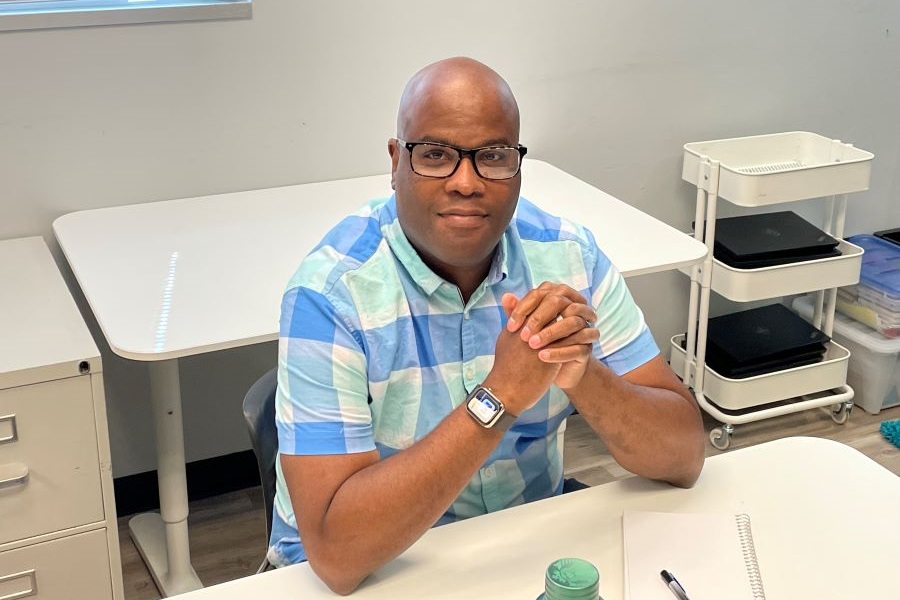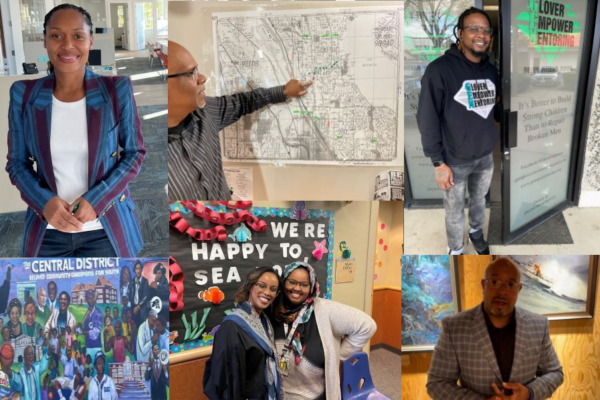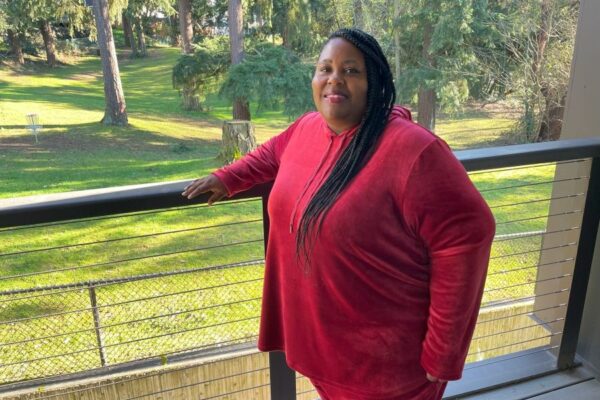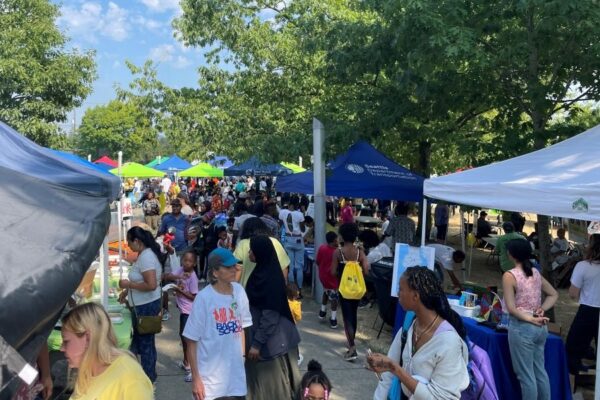Black Community Building Collective: East African Community Services
The Black Community Building Collective is a coalition of Black-led organizations brought together by United Way of King County to build relationships, form strategies that impact the Black community, and to fund those strategies using participatory grantmaking, an approach that cedes decision-making power for funding to communities impacted by funding decisions. The Collective launched in 2020 to invest $3 million in local, Black-led organizations. The Collective comprises 15 Black-led nonprofit organizations—who know their communities best—that determine how funding is directed to support the equitable recovery and long-term viability of King County’s Black community. We are currently investing an additional $1.5 million this year, and we anticipate additional funding in later years.
United Way features monthly spotlights of Collective members. This month, we’re spotlighting East African Community Services, an organization that has grown from a direct services organization to one that provides education services to prepare the next generation of East Africans for higher education and careers. We sat down with East African Community Services development director Amir Noir Soulkin to learn more.
United Way of King County: What are the origins of East African Community Services?
Amir Noir Soulkin: We were founded in 2002 by a Somali brother who was moved to action during the civil wars that were happening in East Africa, particularly in Somalia. Upon arriving in America, he realized there was significant service gap, a lack of cultural competencies and linguistic abilities to really reach in holistic and honorable ways East African refugees coming from very difficult circumstances.
United Way of King County: What is the organization’s current mission?
Amir Noir Soulkin: We are in our third administration; Munira Mohamed is our executive director, and she has transformed the organization towards this explosive growth, not for the sake of growth, but because we’ve had to react to considerable demand for a myriad of services that have evolved back toward our original roots of providing wraparound services. That is education and mentorship programs for young people, home visiting and prenatal and preschool programs for the very youngest among us, [and] diversion programs for our young people who get in trouble with the law. And we have parent leadership training and an advocacy institute, which is designed to acclimate our East African parents to the American civic and social responsibility to organize and advocate for their families in an American society that has been structured in racial dominance from its inception.
United Way of King County: How has the COVID-19 pandemic affected your work?
Amir Noir Soulkin: Right at the beginning of the pandemic, we created East African COVID-19 Rapid Response Funds. Government wasn’t acting fast enough, and subsequent to that, King County government, United Way of King County and other organizations stepped up in a magnificent way, but as is custom for Black folks, we have to step up immediately and do the kind of things we needed to do to make sure our families had culturally appropriate food, baby supplies and baby supports. How do you engage with the government when you are working on citizenship but you don’t speak the language? It was a really hard time, so we had to step up in that way. We have a natural deference and submissiveness and the real-life needs of community.
United Way of King County: Which countries are represented in East African Community Services?
Amir Noir Soulkin: We primarily serve refugees, immigrants and first-generation children from Somalia, Ethiopia and Eritrea. As we have evolved, we have been known for 21 years, but COVID really put us on the map for being down for the community. Kenya is also part of East Africa, and we’ve been getting interesting requests from the Kenyan community to be more engaged and to help. That’s very humbling and exciting to figure out how we can connect with our Kenyan brothers and sisters to make sure their needs are being met as well.
At East African Community Services, we get immigrants of every color and shade coming through our doors, and our organizational practice is that if people come in in need, we don’t have the right to say no. We’ve calculated 14,000 service touchpoints—people who have come in, emailed or called looking for any kind of service—within the last year. That is incredible for us; it’s the highest number of documented service requests and supports for the organization.
But because gentrification is real, our families are being pushed out as far away as Portland. We’ve documented more than 200 families that have moved further south, which is distressing because it destroys an East African presence.
Amir Noir Soulkin of East African Community Services
United Way of King County: Which communities do you serve?
Amir Noir Soulkin: We have roots in South Seattle, so New Holly, Othello and Rainier Valley families come here. But because gentrification is real, our families are being pushed out as far away as Portland. We’ve documented more than 200 families that have moved further south, which is distressing because it destroys an East African presence. That is why we opened a SeaTac Community Center, because we had it. It offers the same thing as this center offers.
United Way of King County: You mentioned advocacy work. Please elaborate on that.
Amir Noir Soulkin: One of our funders is King County Best Starts for Kids to stop the school-to-prison pipeline. We’re really concerned with the emergence of East African kids, particularly East African boys, ensnared with legal problems in school. When our kids get in trouble in school, they don’t call the principal, they call the police. East African Community Services has been in partnership with and in conversation with organizations like King County Equity Now, really thinking about how anti-racist work looks across the African diaspora. We have great relationship with our elected officials and, because of our track record, we are able to reach out to them.
We’re thinking, as we go forward, about how do we do more of the advocacy at the state level. And how do we also, in terms of our Parent Leadership Training Institute, activate and acclimate East African families coming from the continent to know: You’re in America now, and you’re living in an American context. That comes with a particular assumption that you’re going to be advocating for your families. What does that look like, and how do you do it?
United Way of King County: What has the Black Community Building Collective meant to your organization?
Amir Noir Soulkin: The Collective has been extraordinary. For me on a professional level, being surrounded by like-minded Black folk who are unpretentious and down-to-earth and are doing incredible work for the sake of Black communities across the region—we want to do more of that. We want to bring together allies as well. How do we be a part of bringing together diverse, non-Black folks to realize what anti-racism looks like in minority communities as well?





Comments